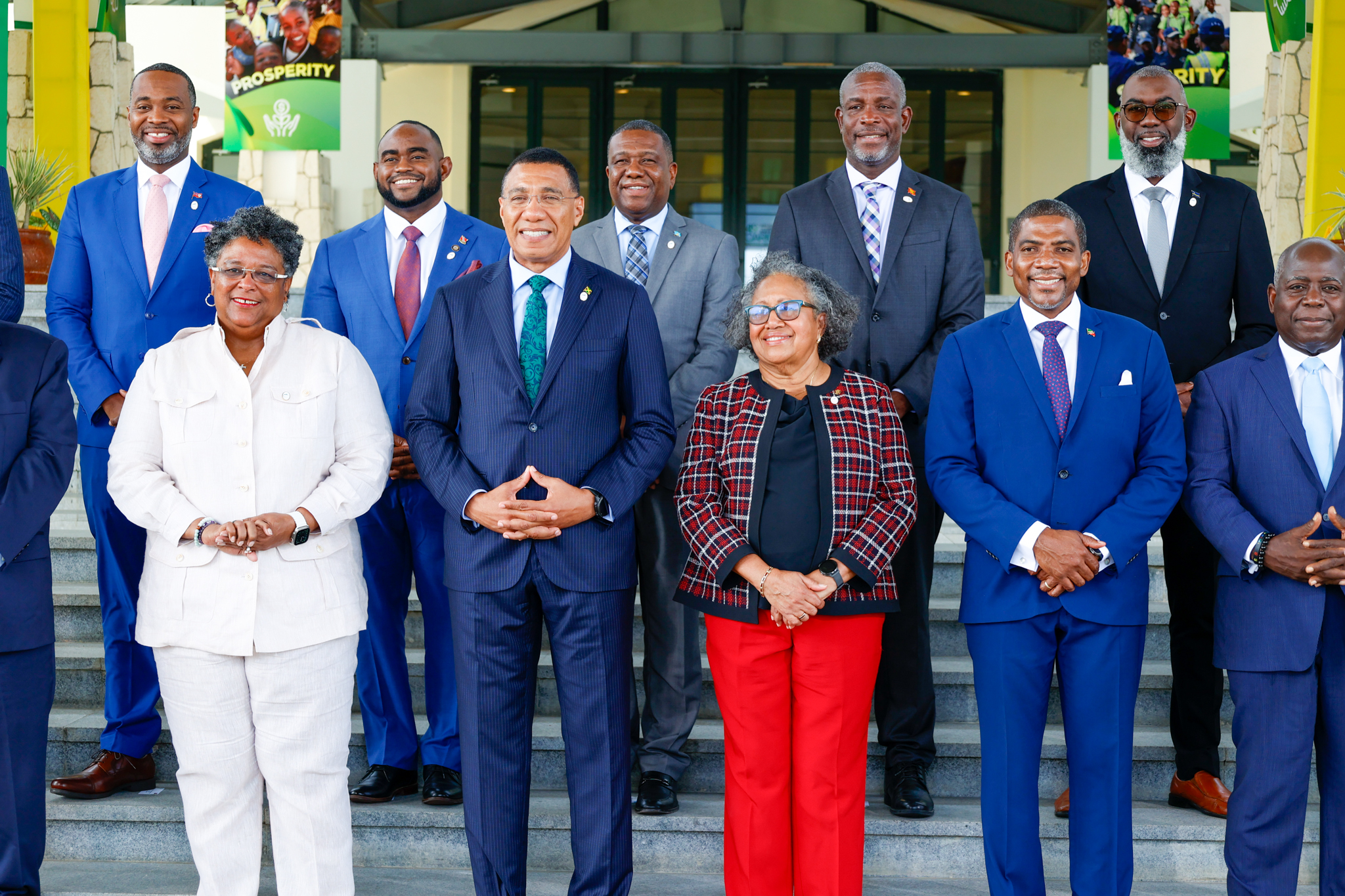As of July 1, 2025, Prime Minister Andrew Holness of Jamaica assumed the rotating chairmanship of the Caribbean Community (CARICOM), stepping into a role that demands clarity, courage, and collective conviction. His appointment arrived not with ceremony alone, but with urgency—just ahead of the recently concluded 49th Regular Meeting of the Conference of Heads of Government, held in Montego Bay, Jamaica.
Now, with the dust settled from the summit and leaders returning to their nations, the region reflects on what was said, what was promised, and what must now begin.
From his opening remarks to the closing press briefing, Holness made it clear: this chairmanship will not be business as usual. He laid out a vision rooted in five interlinked priorities—climate resilience, energy and food security, public health, youth empowerment, and crime prevention—underscoring that time is no longer a luxury. “It is critical that a global war on gangs be declared, similar to the war on terror.” — Prime Minister Holness during his keynote address
This call—one of the summit’s most striking moments—was echoed in the Montego Bay Declaration, a landmark agreement committing CARICOM to a more united and strategic response to transnational crime, gang violence, and illicit arms trafficking. You can read the full declaration here.
But the message wasn’t only about enforcement—it was also about healing and trust. Holness openly acknowledged past shortcomings in CARICOM’s ability to deliver on its own goals: “We have seen leaders come before with these aspirations… but the problem has always been our ability to convert these dreams into reality.”
A Vision for the Next Generation
Youth empowerment stood tall among the recurring themes at the summit. Holness announced support for revitalising the CARICOM Youth Ambassadors Programme and made a case for investing in digital education infrastructure across the region. “The future belongs to our young people. We must equip them to lead it.”
With rising youth unemployment and digital gaps still persistent in many member states, this renewed focus has been welcomed by educators, advocates, and the region’s vibrant youth population.
Free Movement: From Promise to Reality
Perhaps the most celebrated outcome of the 49th meeting was the bold pledge that, by October 1, 2025, all eligible CARICOM nationals will enjoy full freedom of movement across participating member states. This long-awaited step toward a CARICOM Single Market and Economy (CSME) could dramatically reshape intra-regional migration, business, and education.
Details on eligibility and documentation requirements can be found in the CSME implementation portal.
Regional Strength Through Global Partnerships
Looking outward, Holness reaffirmed CARICOM’s commitment to strengthening international partnerships. Engagements are being deepened with the likes of:
These relationships offer CARICOM access to technical support, capacity-building, and security cooperation—all essential in navigating today’s global volatility.
A Note from the Past Chair
Outgoing Chair, Prime Minister Mia Amor Mottley of Barbados, passed the torch with both pride and a challenge. Channeling the spirit of Caribbean resilience, she reminded the region: “We can get it if we really want, but we must try and try and try.”
Cautious Optimism in a Fragmented World
The mood across the Caribbean is reflective, even hopeful. Many regional commentators see Holness’s approach as timely, especially given the pressures of climate change, economic uncertainty, and the ongoing crisis in Haiti. CARICOM Secretary-General Dr. Carla Barnett captured the gravity of the moment: “Unprecedented global uncertainty, economic pressures, and climate vulnerability compel us to act collectively.”
Prime Ministers Gaston Browne (Antigua and Barbuda) and Dr. Terrance Drew (St. Kitts & Nevis) also lent strong voices to the call for regional solidarity, particularly around Haiti and other pressing humanitarian challenges.
Looking Ahead: Unity or Unraveling?
CARICOM, now more than 50 years into its integration journey, stands at another defining crossroads. Holness’s chairmanship will be measured not just by vision, but by implementation. For a region bound by shared history and shared vulnerability, the path forward must be walked together—or not at all. “Our future lies in cooperation.” — Prime Minister Holness
Join the Conversation
Do you believe CARICOM can meet this moment? Will free movement, crime prevention, and youth investment transform the region’s future—or fall short again? Share your thoughts in the comments below.
